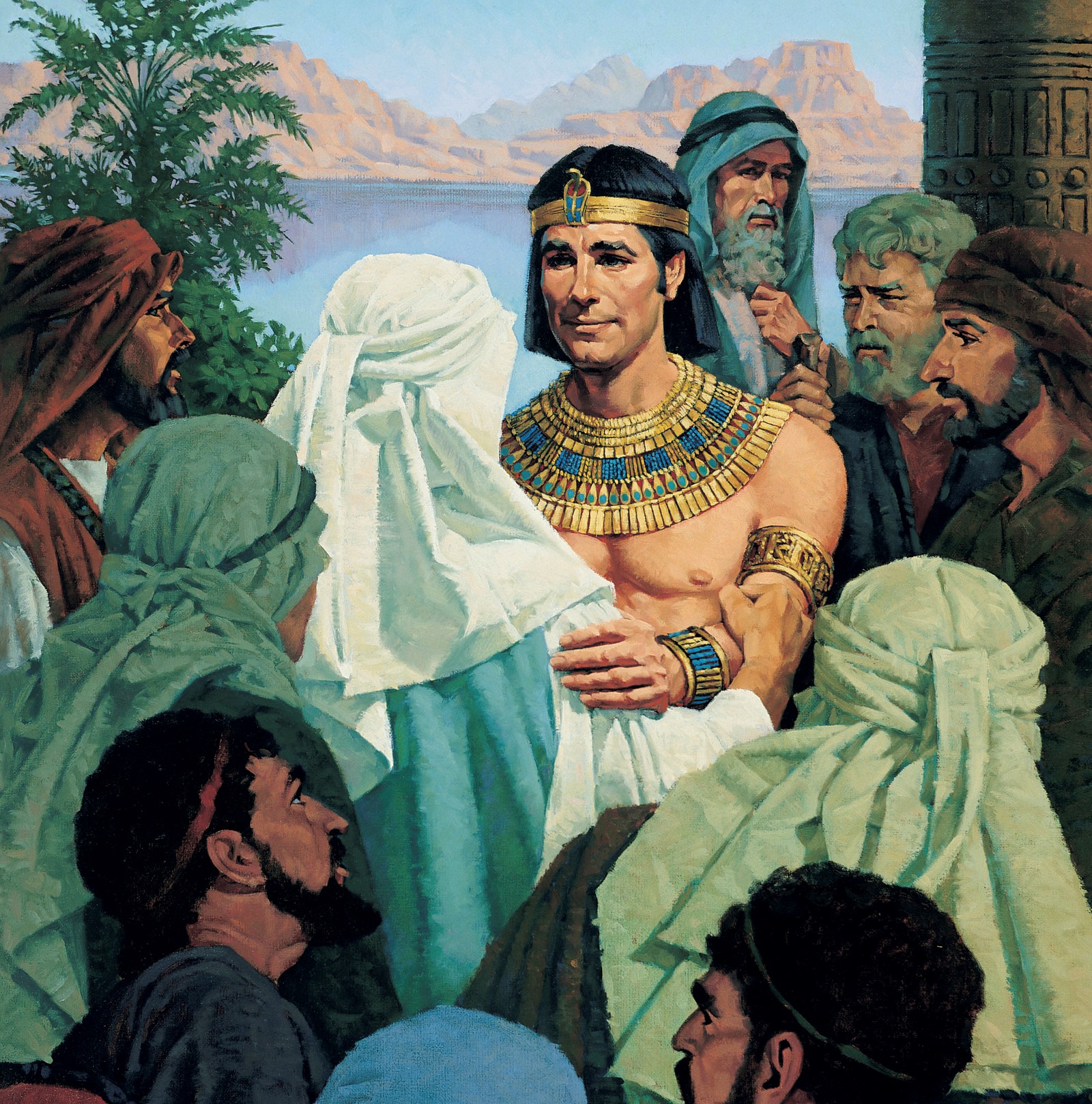To accompany your Come Follow Me study for March 14-20
In addition to reading these chapters, you may want to:
- See the video Come Follow Me LDS 2022 (Mar 14-20) Genesis 42-50 | Joseph’s Reunion (26 minutes, animated) at https://www.youtube.com/watch?v=kSCWM6rBmL0&t=7s
- See the last 14 minutes of the video HD New Media Bible Genesis Project – 16 – Joseph and His Brothers – Joseph’s Brothers at https://www.youtube.com/watch?v=neO_y33kU20&list=PLHdHfiwn51u7X7wLjeL_8E2L-11jkm77I&index=16
- See the video HD New Media Bible Genesis Project – 17 Joseph and his Brothers – Reconciliation at https://www.youtube.com/watch?v=3JZrYZSD1jQ&list=PLHdHfiwn51u7X7wLjeL_8E2L-11jkm77I&index=17
- See the video HD New Media Bible Genesis Project – 18 Joseph and his Brothers – Israel in Egypt at https://www.youtube.com/watch?v=B8Ybft9J1Po&list=PLHdHfiwn51u7X7wLjeL_8E2L-11jkm77I&index=18
- Read the Joseph Smith Translation of Genesis 50, along with 2 Nephi 3.
If you would like a Kahoot game related to this material which you could use for personal study or use with your family or your class, click here: https://create.kahoot.it/share/genesis-42-50/77876506-e774-435f-989b-5c663541a651
Points to Ponder in Genesis 42-50
1. If Joseph was as forgiving of his brothers as we often give him credit for, why did he play so many games with them, deceive them, and torment them before revealing his true identity? Was this his way of getting even?
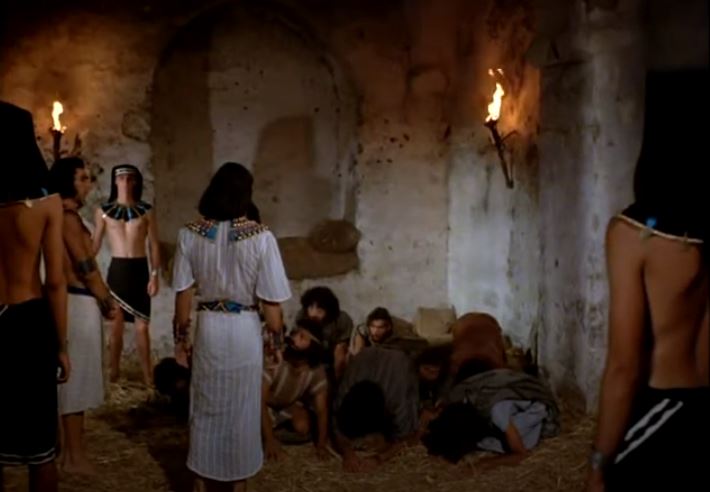
2. List four prominent Old Testament descendants of Abraham who received the birthright blessings even though they were not the eldest son in the family.

3. Why did Jacob at age 130 think his years had been “few” when he had already lived longer than anyone acknowledged by the Guinness World Records? (Genesis 47:9.)

4. Why did Joseph, who as we see in Genesis 50 obviously had the gift of prophecy, use a “divining cup”? (Genesis 44:5)
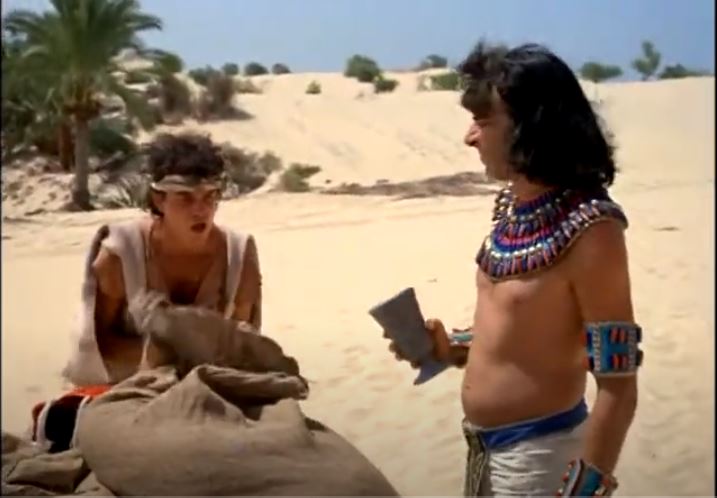
5. What significance does Jacob’s blessing to his son Joseph have for believers in the Book of Mormon?
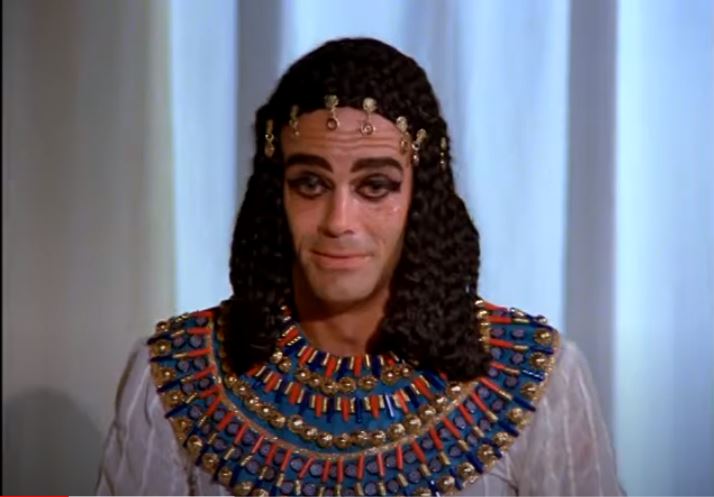
6. What in this week’s reading helps explain why most Latter-day Saints are told in their patriarchal blessings that they are of the tribe of Ephraim?
7. List six future individuals foretold by Joseph (four of whom are named).
8. List six other important future events foretold by Joseph.
9. In the JST version of Gen. 50:33 Joseph is promised that the great latter-day seer who should bear his name should be like unto him. What parallels can you draw between the two Josephs that could be considered fulfillment of this prophecy?
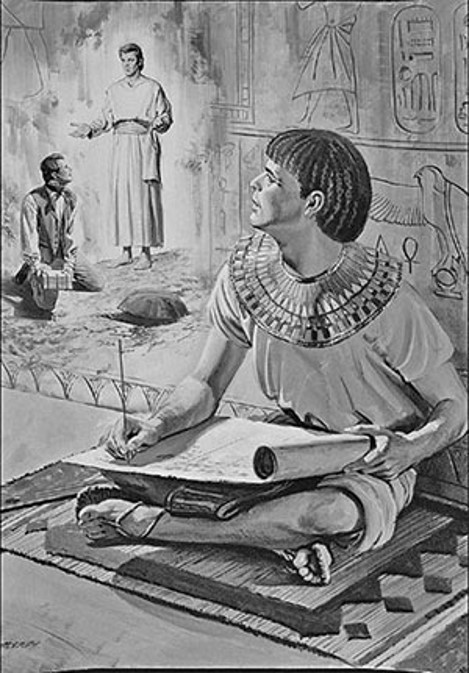
10. What parallels can you point to between the life of Joseph and that of Jesus Christ?
11. Sometimes we find the Old Testament a bit hard to understand because of our use, for good reasons, of the King James Version of the Bible. When you encounter a difficult passage, it can sometimes help to consult the New International Version, the New Living Translation, or any of the many other versions available for free at https://www.biblegateway.com/. Additional help can come from the Institute student manual, or even from a regular dictionary. For instance:
a. When Joseph put his brothers “all together into ward,” what did he really do to them? Did they have wards and branches in those days? (43:17)
b. What did Joseph mean when he said, “Bring these men home, and slay”? (43:16) Which of them did he mean to kill?
c. When Joseph’s brothers made “obeisance” (43:28), what did they really do in ordinary English? Make an apology? Make a good dessert?
d. Why was Benjamin five times as messy at dinner as his brothers? (43:34)
e. Why did Joseph’s brothers have to rent clothes? Couldn’t they buy or borrow some? (44:13)
f. Why was Joseph going to put his hand on his father’s eyes? (46:4)
g. How do you pronounce the word “shew” in 46:31?
12. Genesis 49 is essentially a record of twelve patriarchal blessings which Jacob gave to his sons. What do we need to know about patriarchal blessings today, and how can we find out?
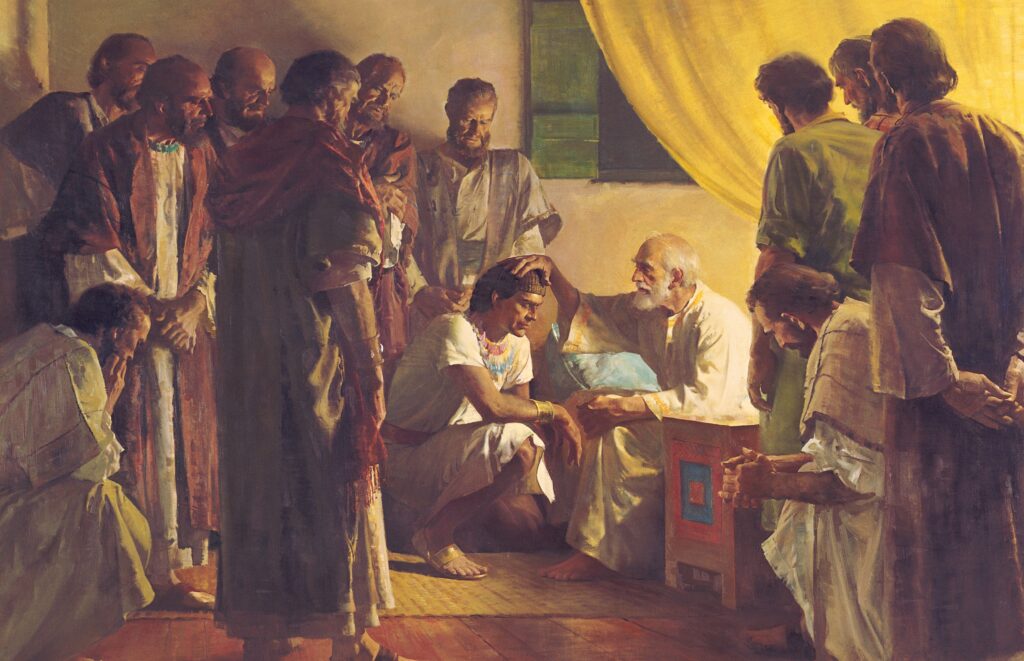
13. Which of the following do you consider to be the main lessons from Genesis 42-50 that you think Moses would have wanted us to learn from these chapters? Rank those you consider to be intended lessons by putting a “1” beside the one you consider most important, a “2” beside the second most important, and so on, putting nothing beside those you don’t think Moses would have considered to be a point he was trying to make. For those you ranked, put a scriptural reference for each from Genesis 42-50.
_____Divine revelation is available to the righteous.
_____True prophecy will always be fulfilled.
_____Apparent misfortune may turn out to be a blessing in disguise.
_____What is called “corn” in Genesis was what we call “wheat” today, and “kine” is just a fancy word for cows.
_____Through transgression we can forfeit blessings to which we might otherwise have been entitled.
_____We will be reunited with beloved family members when we die.
_____People in olden times talked funny, using lots of “thees” and “thous.”
_____Patriarchal blessings can be an important source of comfort and guidance.
_____A latter-day seer named Joseph would be instrumental in the restoration of the gospel, and the tribe of Ephraim in general would have an important latter-day mission.
_____It is important to lay aside food storage in times of plenty in anticipation of times of need.
_____A 20% tax rate is reasonable.
_____Even those who do not share our beliefs can be impressed and influenced by our good examples.
_____Judah’s question, “How shall I go up to my father, and the lad be not with me?” could be applied to our responsibility for those for whom the Lord has given us stewardship.
_____The Lord expects us to forgive even those who have seriously offended or harmed us.
_____Joseph really should have given away the surplus grain of the land rather than make the already impoverished Egyptians pay for it.
_____If someone has done you a bad turn, it is okay to play practical jokes on him and make him suffer a little before forgiving him.
_____Even the worst among us can repent and change.
Possible Answers to Points to Ponder in Genesis 42-50
1. If Joseph was as forgiving of his brothers as we often give him credit for, why did he play so many games with them, deceive them, and torment them before revealing his true identity? Was this his way of getting even?
It would have been out of character for Joseph to exact vengeance. Presumably he is either testing his brothers to make sure they have repented or is giving them trials and experiences to help them become the noble spirits they were foreordained to be.
2. List four prominent Old Testament descendants of Abraham who received the birthright blessings even though they were not the eldest son in the family.
- Isaac
- Jacob
- Joseph
- Ephraim
3. Why did Jacob at age 130 think his years had been “few” when he had already lived longer than anyone acknowledged by the Guinness World Records? (Genesis 47:9.)
He was comparing himself to those of his ancestors who had lived much longer, especially before the Flood.
4. Why did Joseph, who as we see from Genesis 50 obviously had the gift of prophecy, use a “divining cup”? (Genesis 44:5)
Perhaps it was for the same reason the Lord gave Moses and Aaron a rod, put dew on a fleece for Gideon, provided Lehi with a Liahona, and gave Joseph Smith and other prophets a Urim and Thummim. It appears that sometimes the Lord may “humor” the superstitions of His people or fortify their faith by giving them a physical object through which they can seek revelation and receive until they reach the point of spiritual maturity that the physical aid is no longer necessary.
5. What significance does Jacob’s blessing to his son Joseph have for believers in the Book of Mormon?
It indicates Joseph’s seed would be numerous, as Nephites and Lamanites became, that his seed would run over the wall of a “well”–perhaps by crossing the ocean, and that Joseph’s blessings would extend beyond those promised to his progenitors “unto the utmost bound of the everlasting hills,” possibly suggesting a geographical inheritance beyond that promised to Abraham, Isaac, or Jacob.
6. What in this week’s reading helps explain why most Latter-day Saints are told in their patriarchal blessings that they are of the tribe of Ephraim?
Ephraim was given the birthright blessing over Manasseh. Joseph, in turn, received it in place of Reuben. Jacob and Isaac were similarly heirs of the promise originally given to Abraham that righteous converts to the gospel who were not already literally his seed would be counted as such. Unless a Church member is literally and predominantly of another tribe of Israel, it appears he is likely to be adopted into the birthright tribe, that of Ephraim.
7. List six future individuals foretold by Joseph (four of whom are named)
- Joseph Smith, Jr.
- Joseph Smith, Sr.
- Moses
- Pharaoh’s daughter
- Aaron
- Jesus Christ
8. List six other important future events foretold by Joseph
- The Exodus from Egypt
- The parting of the Red Sea
- The giving of the law to ancient Israel, including the Ten Commandments
- The coming forth of the Bible
- The coming forth of the Book of Mormon
- The restoration of the gospel in the last days
9. In the JST version of Gen. 50:33 Joseph is promised that the great latter-day seer who should bear his name should be like unto him. What parallels can you draw between the two Josephs that could be considered fulfillment of this prophecy?
- They shared the same name.
- Both were among the later sons born into their respective families.
- Both showed great spiritual insight as teenagers.
- Both in their youthful enthusiasm unwisely shared details of their spiritual experiences.
- Both at age 17 had revealed insight into their prophetic destinies.
- Both suffered intense persecution, including unjust imprisonment.
- Both were prophets and seers.
10. What parallels can you point to between the life of Joseph and that of Jesus Christ?
The Institute student manual suggests the following:
Joseph was the favored son of his father; so was Jesus (see Genesis 37:3; Matthew 3:17).
Joseph was rejected by his brothers, the Israelites, as was Jesus (see Genesis 37:4; John 1:11; Isaiah 53:3; 1 Nephi 19:13–14).
Joseph was sold by his brothers into the hands of the Gentiles, just as Jesus was (see Genesis 37:25–27; Matthew 20:19).
Judah, the head of the tribe of Judah, proposed the sale of Joseph. Certain leaders of the Jews in Jesus’ day turned Jesus over to the Romans. Judas (the Greek spelling of Judah) was the one who actually sold Jesus. (See Genesis 37:26; Matthew 27:3.)
Joseph was sold for twenty pieces of silver, the price of a slave his age. Christ was sold for thirty pieces of silver, the price of a slave His age. (See Genesis 37:28; Matthew 27:3; Exodus 21:32; Leviticus 27:5.)
In their very attempt to destroy Joseph, his brothers actually set up the conditions that would bring about their eventual temporal salvation—that is, Joseph, by virtue of being sold, would become their deliverer. Jesus, by His being given into the hands of the Gentiles, was crucified and completed the atoning sacrifice, becoming the Deliverer for all mankind.
Joseph began his mission of preparing salvation for Israel at age thirty, just as Jesus began His ministry of preparing salvation for the world at age thirty (see Genesis 41:46; Luke 3:23).
When Joseph was finally raised to his exalted position in Egypt, all bowed the knee to him. All will eventually bow the knee to Jesus. (See Genesis 41:43; D&C 88:104.)
Joseph provided bread for Israel and saved them from death, all without cost. Jesus, the Bread of Life, did the same for all men. (See Genesis 42:35; John 6:48–57; 2 Nephi 9:50.)
11. Sometimes we find the Old Testament a bit hard to understand because of our use, for good reasons, of the King James Version of the Bible. When you encounter a difficult passage, it can sometimes help to consult the New International Version, the New Living Translation, or any of the many other versions available for free at https://www.biblegateway.com/. Additional help can come from the Institute student manual, or even from a regular dictionary. For instance:
a. When Joseph put his brothers “all together into ward,” what did he really do to them? Did they have wards and branches in those days? (43:17) [He put them into prison.]
b. What did Joseph mean when he said, “Bring these men home, and slay”? (43:16) Which of them did he mean to kill? [He meant to kill the animal they would eat.]
c. When Joseph’s brothers made “obeisance” (43:28), what did they really do in ordinary English? Make an apology? Make a good dessert? [They bowed down to him.]
d. Why was Benjamin’ five times as messy at dinner as his brothers? (43:34) [He wasn’t. He was given five times as much food, or “mess” as the others.]
e. Why did Joseph’s brothers have to rent clothes? Couldn’t they buy or borrow some? (44:13) [They tore, their clothes. “Rent” here is the past tense of “rend.”]
f. Why was Joseph going to put his hand on his father’s eyes? (46:4) [He would respectfully close his father’s eyelids once he had passed away.]
g. How do you pronounce the word “shew” in 46:31? [Just like the word “show,” not like the word “shoe.” It rhymes with “sew,” which is spelled the same way, minus the “h.”]
12. Genesis 49 is essentially a record of twelve patriarchal blessings which Jacob gave to his sons. What do we need to know about patriarchal blessings today, and how can we find out?
See https://www.churchofjesuschrist.org/study/manual/gospel-topics/patriarchal-blessings?lang=eng.
13. Which of the following do you consider to be the main lessons from Genesis 42-50 that you think Moses would have wanted us to learn from these chapters? Rank those you consider to be intended lessons by putting a “1” beside the one you consider most important, a “2” beside the second most important, and so on, putting nothing beside those you don’t think Moses would have considered to be a point he was trying to make. For those you ranked, put a scriptural reference for each from Genesis 42-50.
My own answers are based not so much on which points I think are most important as on which points I think Moses most intended us to learn from these specific chapters. Your own answers are as valid as mine, but I might have selected the following, although points 3-11 could easily have been ranked in almost any order, in my opinion. Those not ranked, I did not consider to be points Moses would have recognized.
__4___Divine revelation is available to the righteous. (46:2-4; Genesis 49; Genesis 50, JST)
__5___True prophecy will always be fulfilled. (42:6)
__12___Apparent misfortune may turn out to be a blessing in disguise. (45:5-7; 50:20)
_____What is called “corn” in Genesis was what we call “wheat” today, and “kine” is just a fancy word for cows.
__10___Through transgression we can forfeit blessings to which we might otherwise have been entitled. (49:3-4)
__11___We will be reunited with beloved family members when we die. (49:33)
_____People in olden times talked funny, using lots of “thees” and “thous.”
__3___Patriarchal blessings can be an important source of comfort and guidance. (49)
__1___A latter-day seer named Joseph would be instrumental in the restoration of the gospel, and the tribe of Ephraim in general would have an important latter-day mission. (Genesis 50, JST)
__9___It is important to lay aside food storage in times of plenty in anticipation of times of need. (47:13-24)
_____A 20% tax rate is reasonable.
__8___Even those who do not share our beliefs can be impressed and influenced by our good examples. (45:16-20)
__6___Judah’s question, “How shall I go up to my father, and the lad be not with me?” could be applied to our responsibility for those for whom the Lord has given us stewardship. (44:34)
___2__The Lord expects us to forgive even those who have seriously offended or harmed us. (45:3-10; 50:19-21)
_____Joseph really should have given away the surplus grain of the land rather than make the already impoverished Egyptians pay for it.
_____If someone has done you a bad turn, it is okay to play practical jokes on him and make him suffer a little before forgiving him.
__7___Even the worst among us can repent and change. (42:37; 43:8-9; 44:33)
